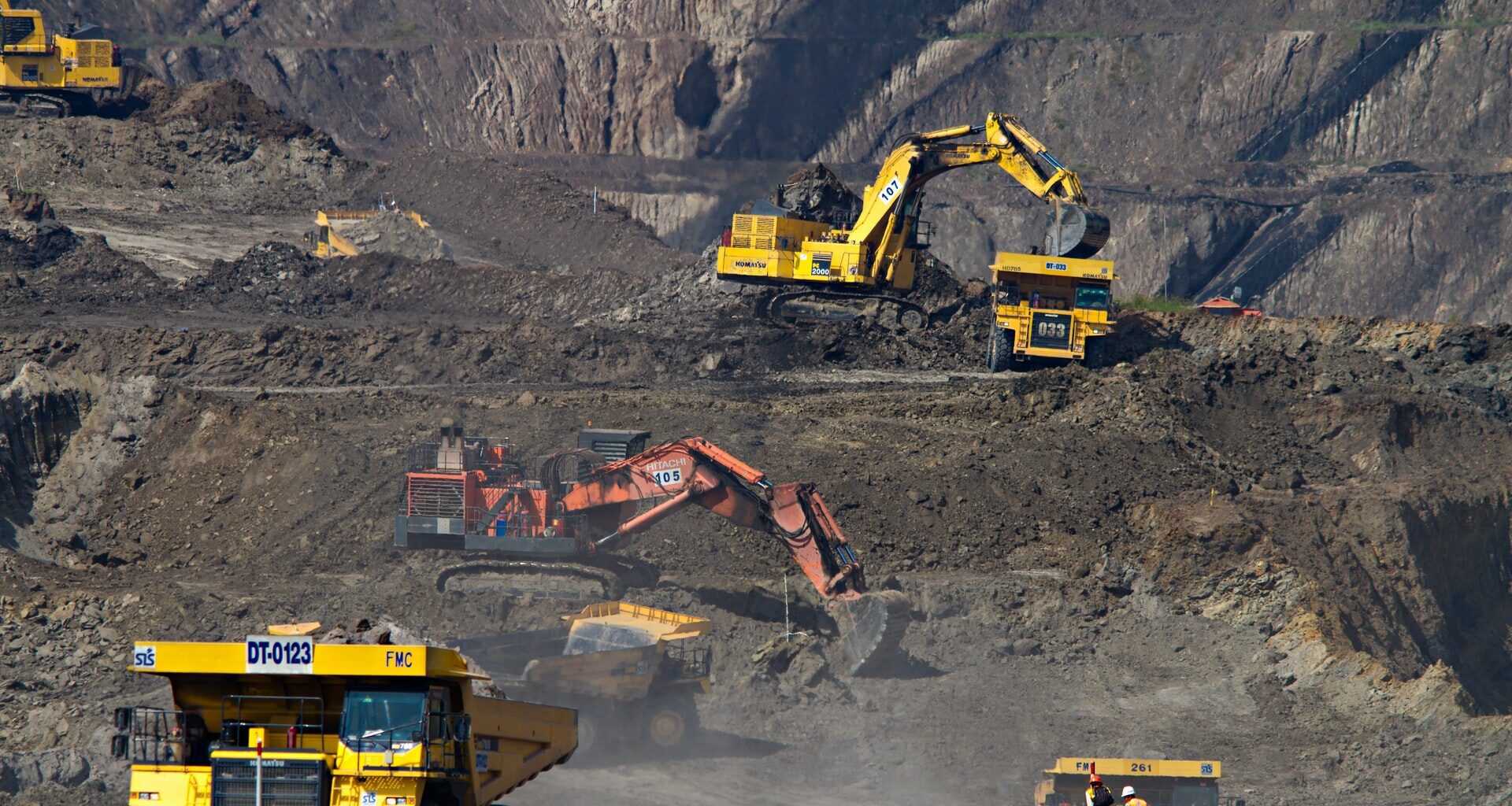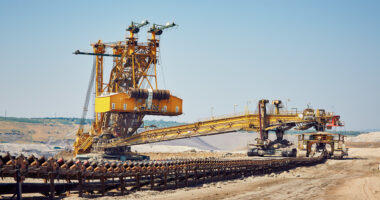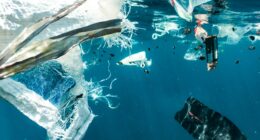Vancouver, British Columbia–(Newsfile Corp. – January 17, 2023) – Wealth Minerals Ltd. (TSXV: WML) (OTCQB: WMLLF) (SSE: WMLCL) (FSE: EJZN) (the “Company” or “Wealth”) announces a maiden NI 43-101 resource estimate for its Ollagüe lithium project (the “Project”) in Chile. This resource estimate for lithium carbonate equivalent (“LCE”) was prepared for Wealth by independent consultants Montgomery & Associates (“Montgomery”).
The resource estimate is based on Wealth’s geophysical survey and the 2022 drill program, which consisted of four vertical holes for a total of 1,111m in length. Hole depths varied from 194m to 350m. All the holes encountered brine, with the top of the brine level at 150m to 200m below surface. All holes ended in brine. The Montgomery resource estimate also includes drilling and geophysical data from previous operators on the Project. The technical report will be filed on the Company’s website and SEDAR within 45 calendar days of this disclosure.
Highlights:
- Total indicated resources are 741,000 tonnes LCE grading 175 ml/L.
- Total inferred resources are 701,000 tonnes LCE grading 185 ml/L.
- Based on the results of exploration conducted by third parties and the recent drilling program completed by Wealth, four tentative hydrogeologic units were defined.
- These hydrogeologic units have medium to high permeability and are amenable for recovering brine to surface.
- It is anticipated that deeper drilling may encounter lithium brine in the deeper parts of the Project, adding to the overall resource given that the lithium-rich brine is located in the deeper part of the basin.
Wealth CEO and Director, Henk van Alphen, stated; “It gives me great pleasure to announce our maiden resource at Ollagüe, which is a major milestone for our Company. We will now commence the next phase of development planning, engaging with our prestigious international engineering partner FLSmidth to prepare a scoping study. Additionally, our geological team is already planning how to best expand the resource and raise the category of the resource in our next drilling campaign.”
“The Ollagüe Project is well suited for lithium production because of its favorable permeability, resource size and expansion potential. Indeed, in terms of LCE resource size, the Ollagüe Project now ranks among its peers in terms of a potential future operation. Consultations with our numerous technology and engineering service providers leads us to conclude that the Ollagüe lithium brine is well suited for Direct Lithium Extraction technology (“DLE”).”
Mr. van Alphen went on to emphasize the local community support received, stating, “I also want to thank the Indigenous Quechua Community of Ollagüe for putting their trust in us, and I look forward to working with them in the future. It is an exciting time for our Company and all stakeholders.”
Table 1: Ollagüe Project Summary of 2022 Indicated and Inferred Resource
| Resource Category | Brine Volume (m3) | Avg. Li (mg/l) | In situ Li (tonnes) | LCE Equivalent (tonnes) |
| Indicated | 800,000,000 | 175 | 139,000 | 741,000 |
| Inferred | 710,000,000 | 185 | 132,000 | 701,000 |
Notes to the Indicated and Inferred Resource Estimate Table:
- Prepared by Mr. Michael J. Rosko, MS PG, (Montgomery & Associates), an Independent Qualified Person (QP) in accordance with National Instrument 43-101 requirements (NI 43-101).
- Effective date: December 31, 2022. All mineral resources have been estimated in accordance with Canadian Institute of Mining and Metallurgy and Petroleum (“CIM”) definitions, as required under NI 43-101.
- Non-economic cutoff grade: 100 mg/L lithium.
- Lithium carbonate equivalent (LCE) is calculated as 5.322785 multiplied by the mass of lithium metal.
- Mineral Resources reported demonstrate reasonable prospect of eventual economic extraction, as required under NI 43-101. Mineral Resources are not Mineral Reserves and do not have demonstrated economic viability. The Mineral Resources may be materially affected by environmental, permitting, legal, marketing, and other relevant issues.
- An Inferred Mineral Resource has a lower level of confidence than that applying to an Indicated Mineral Resource and must not be converted to a Mineral Reserve. It is reasonably expected that the majority of Inferred Mineral Resources could be upgraded to Indicated Mineral Resources with continued exploration.
Geological Setting
Salar de Ollagüe is located in the Andes belt in northern Chile on the border with Bolivia. One of the most important characteristics that defines the region is the presence of evaporitic basins or “salars” where important deposits of borates and sodium sulfate can occur and where lithium can concentrate in brines.
The region of Salar de Ollagüe is characterized by a western belt of volcanoes, a depression of salt flats, and an eastern chain of volcanoes. The western belt of volcanoes has an orientation which trends north-south. This mountain belt is the western limit for the watersheds in the area. The eastern belt of volcanoes has an NNW-SSE orientation and borders Bolivia, including the Ollagüe (5,863 masl) and Ascotán (5,478 masl) volcanoes, see Map 1.

Map 1: Topography Map of Ollagüe Area
To view an enhanced version of Map 1, please visit:
https://images.newsfilecorp.com/files/4437/151484_11791072c439f99e_002full.jpg
The oldest unit in the area corresponds to andesitic stratovolcanoes, highly weathered in both the eastern and western belts and surrounded by modern lava centers. The radiometric age K-Ar indicates a range from 15 to 8 million years ago (m.a.).
Younger strata volcanoes and volcanic flows of andesitic and dacitic composition also occur in the area. In some areas, porphyritic dacitic domes occur. The domes show flattened shapes with abrupt edges due to high lava viscosity. The craters of the volcanoes have not been strongly affected by weathering. The principal volcano in the area is the Ollagüe volcano, with a conical shape composed of gray, pyroxene-rich andesitic lavas and pyroclastic sequences.
Unconsolidated deposits are distributed throughout the area. These are interbedded with saline deposits and cover many of the older units in the area. These deposits are composed of different types of sediments, including alluvial and fluvioglacial sediments, moraines, lahars, and pyroclastic deposits. It is estimated that the age range is Lower Pleistocene-Holocene.
The youngest units in the area are the evaporites which include calcium and sodium sulfate minerals, calcium carbonate, sodium chloride, lithium and borates. These deposits are continually being formed, so they are considered to be the most modern deposits in the area. The Ollagüe Project is part of this unit.
Conceptual Model of the Ollagüe Basin
Based on the available information, the Salar de Ollagüe appears to be an immature or intermediate salar. Basin margins are interpreted to be fault controlled. The margin of the basin is dominated by volcanic units. Depth to bedrock is interpreted to be more than 300 meters below the land surface based on the drill hole sample and geophysical surveys. Additional studies are required to accurately delineate basement depth.
Based on exploration drilling, the upper part of the system consists mostly of clastic sediments saturated with freshwater/brackish water. The thickness of this upper part was variable in the central, western and eastern areas of the salar. At depth, brine was encountered below about 150m, also in clastic sediments.
The principal sources of water entering the Project area are from surface water coming into the basin from the basin margins. To date, surface water flow has not been formally measured. Some groundwater inflow from natural recharge along the mountain fronts via alluvial fans is also believed to exist. In both cases, there appears to be limited mixing of the fresh water and brine in the basin due to density differences. Evaporation of fresh water in the basin over time results in concentration of the dissolved minerals and ultimately results in brine generation.
Mineral Resource Estimation Methodology
The mineral resource estimate for the Ollagüe Project was prepared to industry standards and best practices by Michael J. Rosko, MS PG, an Independent QP for the purposes of NI 43-101. The mineral resource was estimated by constructing polygonal blocks surrounding wells, divided into horizontal layers by hydrogeologic units. The resource model includes discrete-depth data points, such as drainable porosity determined on core and depth specific samples for brine chemistry. Drainable porosity estimates were also assigned based on the field lithologic descriptions (non-laboratory). Results from the TEM geophysical survey were considered regarding the overall understanding of the stratigraphy of the hydrogeological units, and for identifying areas of likely brine aquifer, including those deeper areas not penetrated by exploration drilling. The total area of polygon blocks used in the resource is 63.38 km2. The initial resource calculation for the Ollagüe project consists of an Indicated and Inferred resource estimate.

Map 2: Location Map for 2022 Exploration Coreholes, Including Lithium Chile Coreholes
To view an enhanced version of Map 2, please visit:
https://images.newsfilecorp.com/files/4437/151484_11791072c439f99e_003full.jpg
The drilling contractor for the corehole exploration hole program was Terraservice S.A., based in Santiago, Chile. All of the corehole exploration holes were drilled using diamond drill hole (DDH) methods with mud. Drilling fluid was polymer-based. Core samples were described and stored in labeled plastic core boxes. The data from the corehole material was combined with previous Wealth geophysical surveys and historic data to make an initial resource calculation, see Map 2.
Each corehole was divided into hydrogeologic units using four predominant lithologies (Ignimbrite, Fractured Ignimbrite, Tuff with interbedded conglomerate and Deeper volcanic breccia). Drainable porosity values for each hydrogeologic unit within a single polygon were computed by averaging the available drainable porosity data from within the hydrogeologic unit at the polygon corehole. In addition, drainable porosity was estimated and assigned from laboratory analyses of similar lithologies in other Salar de Ollagüe coreholes, or conservative drainable porosity values were estimated from published values. For the zones in the corehole where very little core was recovered because of enhanced fracturing or poor cementation, a larger drainable porosity was assigned. The downhole electrical conductivity surveys were used to estimate the depth to the brine interface; low lithium concentration fresh and brackish water zones above the brine were excluded from the resource estimation.
Potential Upside
The Indicated and Inferred resource estimates will likely change as more information becomes available. The 2022 program has substantially increased the understanding of the conceptual model of the basin and has allowed the estimation of this initial lithium resource. In some areas, deeper drilling may confirm lithium brine in the deeper parts of the aquifer, and add to the resource, especially given that the lithium-rich brine is located in the deeper part of the basin. Additional characterization in the northmost concessions of the Project could also add additional Indicated or Measured resources.
Qualified Persons
The Mineral Resource Estimate in this release has an effective date of December 31, 2022 and was prepared by Mr. Michael J. Rosko, MS PG in accordance with NI 43-101. Mr Rosko is Operations Manager of Montgomery & Associates Consultores Limitada (a wholly owned subsidiary of Montgomery & Associates) and is an independent Qualified Person (“QP”) as defined by NI 43-101 guidelines. He participated in the preparation of this press release and has reviewed and approved the technical content.
Sample Collection, Preparation, Analysis, and Security
Sample collection, preparation, analysis, and security apply to samples obtained during exploration drilling and sampling programs. Samples were bottled on site; paperwork was completed in the field. Field parameters, including temperature, electrical conductivity, and pH, were obtained for the samples and recorded. All samples were labeled with permanent marker, sealed with tape, and stored at a secure site, both in the field and in Ollagüe, Chile. Montgomery and Wealth personnel personally delivered the samples to ALS Laboratory in Antofagasta, Chile.
Data Verification
As part of the due diligence and confirmatory process, Michael Rosko (Author and independent QP) visited the Project site (Salar de Ollagüe) on August 03, 2022. During his visit, Mr, Rosko observed and verified drilling and sampling activities conducted at exploration well OC-01. Also, he visited locations of all corehole exploration wells drilled during the campaign.
All samples collected in the Ollagüe project area are currently stored in Ollagüe, Chile, and is being managed by Wealth. Data were reviewed after entry into the database. The QP has verified the drainable porosity and chemistry data used for the resource estimates given in this report.
About Wealth Minerals Ltd.
Wealth is a mineral resource company with interests in Canada and Chile. The Company’s focus is the acquisition and development of lithium projects in South America.
The Company opportunistically advances battery metal projects where it has a peer advantage in project selection and initial evaluation. Lithium market dynamics and a rapidly increasing metal price are the result of profound structural issues with the industry meeting anticipated future demand. Wealth is positioning itself to be a major beneficiary of this future mismatch of supply and demand. In parallel with lithium market dynamics, Wealth believes other battery metals will benefit from similar industry trends.
For further details on the Company readers are referred to the Company’s website (www.wealthminerals.com) and its Canadian regulatory filings on SEDAR at www.sedar.com.
On Behalf of the Board of Directors of
WEALTH MINERALS LTD.
“Hendrik van Alphen”
Hendrik van Alphen
Chief Executive Officer
For further information, please contact:
Marla Ritchie, Michael Pound or Henk van Alphen
Phone: 604-331-0096 or 604-638-3886
For all Investor Relations inquiries, please contact:
John Liviakis
Liviakis Financial Communications Inc.
Phone: 415-389-4670
For all Public Relations inquiries, please contact:
Nancy Thompson
Vorticom, Inc.
Office: 212-532-2208 | Mobile: 917-371-4053
Follow Us:
Facebook – https://www.facebook.com/WealthMineralsLtd
Linkedin – https://www.linkedin.com/company/wealth-minerals
Twitter – https://www.twitter.com/WealthMinerals
Neither TSX Venture Exchange nor its Regulation Services Provider (as that term is defined in the policies of the TSX Venture Exchange) accepts responsibility for the adequacy or accuracy of this press release, which has been prepared by management.
Cautionary Note Regarding Forward-Looking Statements
This press release contains forward-looking statements and forward-looking information (collectively, “forward-looking statements”) within the meaning of applicable Canadian and US securities legislation. All statements, other than statements of historical fact, included herein including, without limitation, statements regarding the anticipated content, commencement, timing and cost of exploration programs, anticipated exploration program results, the discovery and delineation of mineral deposits/resources/reserves, the Company’s expectation that it will be able to enter into agreements to acquire interests in additional mineral projects, and the anticipated business plans and timing of future activities of the Company, are forward-looking statements. Although the Company believes that such statements are reasonable, it can give no assurance that such expectations will prove to be correct. Forward-looking statements are typically identified by words such as: believe, expect, anticipate, intend, estimate, postulate and similar expressions, or are those, which, by their nature, refer to future events. The Company cautions investors that any forward-looking statements by the Company are not guarantees of future results or performance, and that actual results may differ materially from those in forward looking statements as a result of various factors, including, but not limited to, the state of the financial markets for the Company’s equity securities, the state of the commodity markets generally, variations in the nature, quality and quantity of any mineral deposits that may be located, variations in the market price of any mineral products the Company may produce or plan to produce, the inability of the Company to obtain any necessary permits, consents or authorizations required, including TSXV acceptance, for its planned activities, the inability of the Company to produce minerals from its properties successfully or profitably, to continue its projected growth, to raise the necessary capital or to be fully able to implement its business strategies, and other risks and uncertainties disclosed in the Company’s latest interim Management Discussion and Analysis and filed with certain securities commissions in Canada. All of the Company’s Canadian public disclosure filings may be accessed via www.sedar.com and readers are urged to review these materials, including the technical reports filed with respect to the Company’s mineral properties.









